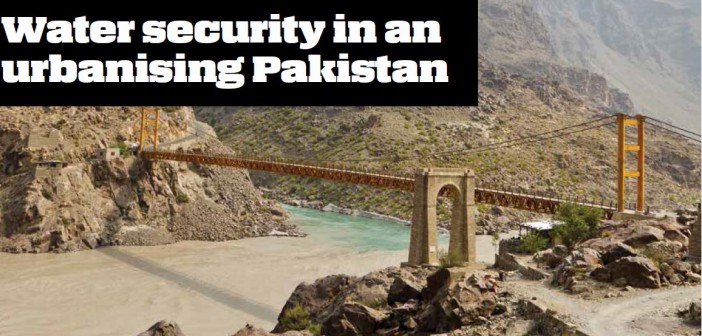
The availability of fresh, potable water has emerged as a key security challenge in Pakistan. Less than 1,000 cubic metres of fresh water is now available for every person annually. While a great deal of focus has been on Pakistan’s interstate water challenges, particularly with India, internal water management issues present a far greater threat to national security and political and social stability.
Water Management in Pakistan
Pakistan is an arid to semi-arid country that does not have enough water to meet current or future demand. Inconsistent rainfall patterns have led to a dependence on the Indus River and subterranean aquifers. As a consequence, the river is now grossly over-allocated and a series of canals and diversions to service the agricultural sector has left the river basin vulnerable to low flows and drought further downstream. Groundwater depletion and reduced flows in the river both present significant threats to Pakistan’s water security.
Climate change will exacerbate that insecurity. Increased variability in climate is predicted to intensify monsoonal rains and a rising incidence of flooding and drought is expected as a result. Glacial melt in the Himalayas will also have a significant impact on river flows in the Indus River Basin, causing flash flooding and a long-term reduction in water availability. Adapting to these changes and mitigating the impacts of climate change, particularly in agricultural regions, will be critical to securing long-term food and water security.
Limited storage capacity creates further vulnerability; particularly as climate variability increases and water availability fluctuates from season to season. The Asian Development Bank estimates that Pakistan’s water storage capacity is no more than a 30-day supply. This is significantly less than the recommended supply of 1,000 days. Addressing storage capacity limitations should be prioritised to ensure a stable supply of water year round, particularly as rainfall becomes more sporadic and snowmelt reduces.
Perhaps the greatest threat to Pakistan’s water security is failed governance. Volatile domestic politics, embedded in systemic corruption, has created an environment ripe for the mismanagement of the country’s natural resources. Already dealing with an energy crisis, Pakistan must now address a growing scarcity of water within a system that is not conducive to implementing public policy or transparent management systems… Click HERE to find out more about this article





